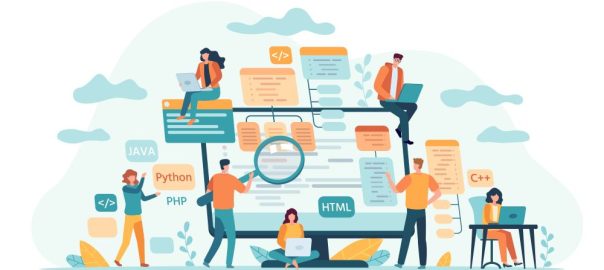Software for small businesses comes in all shapes and sizes. You have off-the-shelf software companies buy for less if they can live with limited function. There are off-label deployments of commercial software packages that were designed for an entirely different purpose but that can be utilized effectively enough with some workarounds. Then there is custom software.
Custom software is what we do. We create software specific to each client’s needs based on a modular system that keeps costs in check without sacrificing function. We are firmly committed to custom software as a better solution than off-the-shelf packages and off-label commercial deployments.
That being said, not all custom software solutions are created equally. If you are thinking about software customization, be careful about the vendor you ultimately choose. Here are some key characteristics you should insist on:
1. User Friendliness
There is always the temptation among software developers to create solutions from their point of view rather than the view of those users who will ultimately have to work with it. The end result can be a package that isn’t user-friendly. This is a non-starter for a lot of companies searching for new software.
Software for small businesses should always be user-friendly. It should have as gentle a learning curve as possible. Users should be able to master the software in a few weeks. It should never take months for users to get comfortable.
2. Built-In Scalability
Custom software for small businesses should offer built-in scalability. Otherwise, a company is left having to deploy multiple solutions as their business grows and expands. That might be good for a software developer looking to maximize revenues, but it is not good for the small business. As the customer, a small business deserves scalability.
3. Some Amount of Flexibility
Custom business software should be flexible enough to adapt to a company’s unique needs. However, it should not be so flexible as to be filled with bloat (see the next point). It should definitely not be so rigid as to force users to change workflow unless, of course, changing the workflow would make things more efficient.
Unfortunately, this particular aspect is generally touch-and-go for software developers. It can be hard for them to determine how much flexibility a package needs because they will not be working with the finished project in the wild. Their experiences will be limited to the more sterile development environment.
4. No Bloat (or as little as possible)
For some companies, the impetus for going with custom business software is the opportunity to get a tailor-made solution without any bloat. You know the score. So many off-the-shelf commercial products are so bloated as to be difficult to use. They offer tons of features that never get utilized. In the end, they are paying developers to create a whole bunch of bells and whistles that will remain forever buried in so many menus.
Minimizing bloat makes software more efficient. Just saying no to bloat makes software easier to use, more secure, and decidedly more user-friendly. A smaller footprint on the company’s network is an added bonus.
5. A Budget Friendly Price
Last but not least is a budget friendly price. Companies in need of custom software for small business should not have to pay an arm and a leg to get it. Granted, it’s probably going to be more expensive than off-the-shelf software. Still, custom software should be affordable.
Modest specializes in custom software for small businesses. If you would like to know more about what we do, we are always willing to answer questions, discuss software needs, and propose the best solutions we can.







